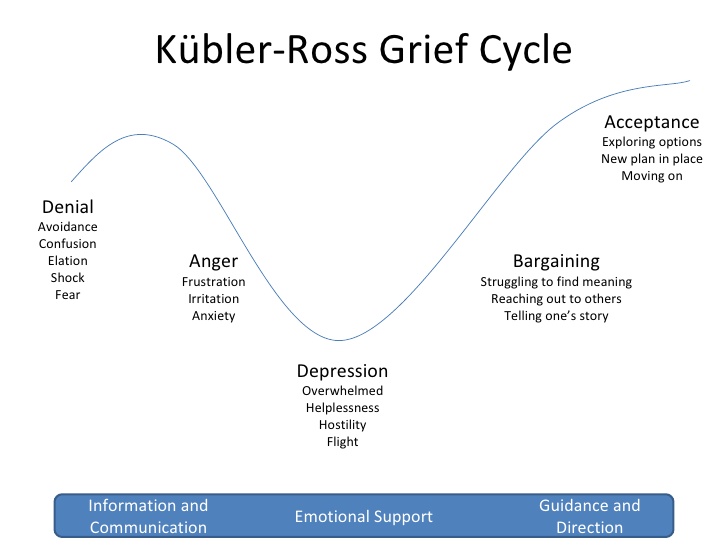
How are you doing mentally, physically, emotionally, socially, spiritually, personally & professionally navigating though these unprecedented challenging times? In the blink of an eye, life as we know it has changed dramatically the past few weeks as a global virus has required us to adjust our lives in so many different ways. From constant hand washing & regular disinfecting of surfaces to sheltering in place & social distancing…the list goes on & on and likely will continue to do so for the foreseeable future.
Many people I talk with are noticing a wide-range of thoughts, feelings & experiences adjusting to this ‘new normal’. One day there is fear & worry for what is happening & where all of this is going, as well as sadness & anger for the great loss & disappointment that has come with living through a pandemic. Other days there may be radical acceptance & some positivity & hope for the future that increased kindness & a slower pace of living will come about resulting from this challenging experience. Know that it is perfectly normal to experience divergent thoughts, emotions & behaviors as we go through the stages of grieving this loss. We are experiencing the loss of possibilities for our former way of life & the unsolicited need to adjust our plans & expectations to a new & different way of living.

According to psychiatrist & grief-loss expert Elisabeth Kubler-Ross, there are five stages of grief we may go through when grieving a loss:
- Denial – The first stage of grief & loss is often denial. In this stage, we believe the information is somehow mistaken, and we cling to a false, preferable reality.
- Anger – The second stage is anger. A time when we recognize that denial cannot continue & we become frustrated, especially at other individuals. Psychological responses during the anger stage may be: “Why me? It’s not fair!”; “How can this happen?”; “Who is to blame?”; “Why would this happen?”.
- Bargaining – The third stage involves hope that we might avoid a cause of grief. Usually, there are negotiations made in exchange for a more preferred situation. In this stage we are willing to compromise & bargain for reduced impact. We may find ourselves saying things like “If only I could do _____ to get _______”.
- Depression – In the fourth stage of loss we experience sadness. We may say things like: “I’m so sad, why bother with anything?”; “What is the point?”; “I miss _____; why go on?”. During this stage we may despair at the recognition of the fragility of life. In this stage, we may become silent, refuse visitors and spend much of the time mournful and sullen.
- Acceptance – In the fifth stage we may say things like “It’s going to be okay.”; “I can’t fight it; I may as well prepare for it.” In this last stage, we embrace reality of the tragic event. This stage typically comes with a calm, retrospective view and a stable condition of emotions.
Going through these stages is not a linear process in that not everyone will experience each & every stage, and simply because we achieve acceptance does not mean at some point we won’t return to one of the previous stages such as anger or depression as memories, songs, dates, pictures, etc. can trigger us to experience the loss all over again. However, do take comfort in knowing that time has the ability to heal & as we move forward in life as we are able to find ways to manage those difficult thoughts & feelings with greater ease.

Here are a few mindful living tips to help you navigate this journey:
- Take deep breaths early & often. Breathe in through your nose & out through your mouth. Count to four while breathing in & count to eight while breathing out. Taking deep breaths helps to slow down the stress response center of your brain & the physiological effects of stress such as increased heart rate & blood pressure.
- Take life one day, hour, minute at a time. Focus on the present moment & try not to dwell in the past or forecast too far out into the future.
- Honor the wide-range of thoughts & feelings you may experience. Process information from a wise-minded perspective (balance of left-brain logic & right-brain emotion). Notice vs judge what is happening & respond vs react as best you can.
- Limit screen time & exposure to the 24/7 news cycle. Watching the news often can increase perceptions of threat and activate our brain’s ‘fight, flight or freeze’ response to stress which can lead to greater mental, physical & emotional illness.
- Be kind to yourself & others & give grace where you can. Loving Kindness meditations can help cultivate compassion, joy & healing – practice by repeating 3 or 4 positive, reassuring phrases to yourself:
- “May I be ______ (strong, healthy, wise, safe, at peace)”. Repeat 3-4 times while taking deep breaths.
- You can also extend loving kindness to others by shifting your focus and picturing a particular person or group of people in your mind & repeating the following phrase 3-4 times: “May you be ______ (strong, healthy, wise, safe, at peace)”.
- Utilize your supports & engage in healthy distractions.
- Call a trusted friend or loved one.
- Exercise – go for a walk, run or bike ride; do some yoga; lift weights, do some calisthenics or engage in strength training exercises.
- Start, finish or take an action step on a meaningful project.
- Play a game.
- Read a book.
- Cook a healthy meal.
- Use humor as a way to help manage stress. Laughter helps to build resilience & emotional strength.
- Watch a funny movie or TV show or video.
- Read a comic book.
- Recruit humorous friends & family members to help you laugh.
- Find a reason to SMILE.
- Value the potential humor in the extremes of life.
- Learn a new joke & share it with a friend.
- Take time each & every day to reflect on what you are grateful for. Gratitude releases stress hormones & increases happiness & positivity.
- Give yourself permission to ‘just be’. We live in a very fast paced world at times, so it’s easy to get caught up in the busyness of life. Make regular time to ‘just be’ by spending unscheduled time experiencing being by yourself. Put the phone or tablet down & find a comforting place inside or outside to sit & be & take some deep breaths. Simply enjoy that particular moment of life without feeling you need to occupy yourself with anything other then being present with yourself by yourself.
- Take advantage of professional counseling support via phone & virtual telehealth platforms. Talking with a licensed professional counselor or social worker can help you to process difficult thoughts & feelings in a safe & nonjudgmental environment where you can release stress & learn more about healthy ways to manage life’s challenges moving forward.
Peace & well wishes for good health to all – Counselor Lori

